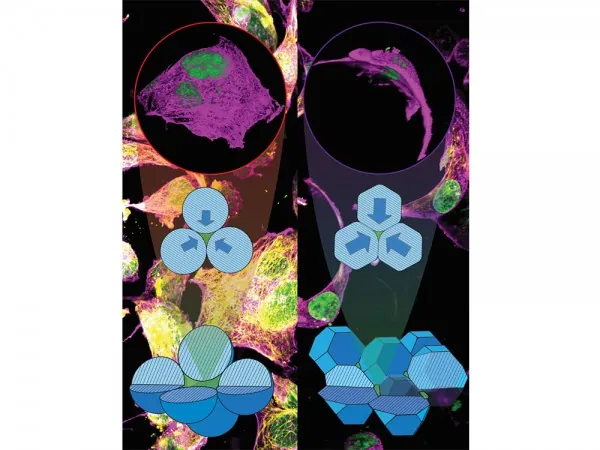
Revolutionizing Pharma Logistics: Bridging the Gap in Vaccine Distribution Amid Climate Challenges
2024-11-28
Author: Li
Supply Chain Vulnerabilities Exposed
The complexity of the pharmaceutical supply chain is a double-edged sword; while it facilitates widespread distribution, it also harbors numerous choke points vulnerable to disturbances. Reports indicate that drug shortages led to a staggering 20% increase in hospital drug expenses during 2022 and 2023 due to supply chain disruptions. Moreover, the World Health Organization highlights that a shocking 10.5% of the global medicine supply consists of counterfeit drugs, predominantly affecting low-income nations. Addressing these weaknesses remains a priority for industry leaders.
The Quest for Vaccine Equity
As the world shifts its focus to vaccination, ensuring equitable access to life-saving vaccines becomes paramount. The COVID-19 pandemic laid bare the inequities faced by vulnerable populations, particularly in low- and middle-income countries where logistical limitations severely hindered vaccine distribution. Efficient cold chain management systems are crucial to delivering vaccines to remote regions, yet many global health frameworks lack the necessary infrastructure to support such initiatives. Moreover, tackling vaccine hesitancy is equally important; a 2022 survey showed that over 20% of respondents expressed skepticism towards COVID-19 vaccines, fueled by misinformation and distrust. Creating transparent, culturally sensitive public health communication strategies is vital to restoring trust and encouraging vaccine uptake.
Innovative Solutions on the Horizon
As pharmaceutical companies strive to fortify their supply chains, innovative solutions are emerging. Temperature control is now deemed the top priority for logistics providers, with 44% of firms emphasizing its importance. As climate change intensifies, advancements in cold chain technologies are crucial for safe vaccine distribution. Innovations like temperature-controlled packaging and sophisticated monitoring systems are gaining traction. Real-time data analytics and predictive modeling are revolutionizing supply chain management, allowing organizations to fine-tune inventory levels and preemptively address potential disruptions. Additionally, diversifying suppliers, employing advanced tracking systems, and utilizing technologies such as blockchain and the Internet of Things (IoT) can significantly enhance supply chain resilience. Government collaboration is imperative. By supporting partnerships and investing in robust public health infrastructure, governments can streamline regulations that currently pose barriers to vaccine distribution—particularly in regions like Africa, where 73% of surveyed participants identified regulatory complexity as a significant issue.
A Sustainable Future for Pharma
The urgency to adapt to climate change also presents an opportunity for pharmaceutical firms to improve their supply chain efficiency and sustainability. Strategies such as optimizing transportation routes and utilizing eco-friendly packaging not only reduce emissions but also bolster the bottom line. Innovations like digital twins—virtual replicas of the physical supply chain—help identify inefficiencies and enhance operational performance. One notable initiative is BioNTech's Biotainer project, which deploys mobile mRNA manufacturing units to areas with limited healthcare resources. This decentralized approach enables localized vaccine production and distribution, demonstrating how technological innovation can effectively overcome logistical barriers and reach underserved populations. As climate-sensitive diseases continue to challenge public health systems, agile, innovative pharmaceutical logistics solutions are essential. The industry must prioritize both the integrity of medical products and equitable access for all communities. Partnerships with expert logistics providers, governments, and NGOs are crucial in ensuring that life-saving vaccines and therapies reach even the most marginalized populations.
Conclusion
In summary, the pharmaceutical industry's commitment to sustainability, equity, and innovation not only addresses immediate health challenges but also shapes a brighter, more equitable global health future. As we navigate this unparalleled landscape, collaboration and technological advancement remain pivotal in transforming how we combat infectious diseases worldwide.


 Brasil (PT)
Brasil (PT)
 Canada (EN)
Canada (EN)
 Chile (ES)
Chile (ES)
 España (ES)
España (ES)
 France (FR)
France (FR)
 Hong Kong (EN)
Hong Kong (EN)
 Italia (IT)
Italia (IT)
 日本 (JA)
日本 (JA)
 Magyarország (HU)
Magyarország (HU)
 Norge (NO)
Norge (NO)
 Polska (PL)
Polska (PL)
 Schweiz (DE)
Schweiz (DE)
 Singapore (EN)
Singapore (EN)
 Sverige (SV)
Sverige (SV)
 Suomi (FI)
Suomi (FI)
 Türkiye (TR)
Türkiye (TR)